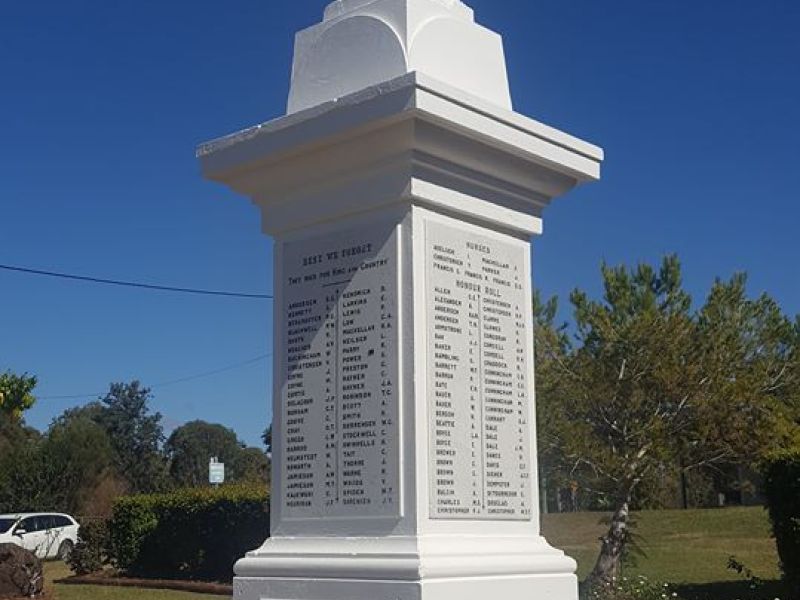Thomas Carey Robinson
Thomas Carey Robinson was born on the 25th of April, 1884, in Corryong, to George and Rachel (nee Morris) Robinson. He was the eldest of three boys, although the youngest, Leslie, died in 1900 when he was only seven years old.
Sometime between 1892 and 1899, the family moved from Corryong to Mason St, Preston, on the outskirts of Melbourne. Thomas settled into the area, obtaining work with Messrs Henry Berry and Company (a wholesale grocery business) as a shipping clerk. He played baseball with the Northcote and Collingwood clubs and was known in junior cricket as captain of the Preston Cricket Club.
Thomas enlisted in Melbourne on the 17th of July, 1915. On the 6th of January the following year, he applied for a commission, spending some time at the 6th OTS at Broadmeadows, before being sent to Duntroon in Canberra. He was successful, being given the rank of 2nd Lieutenant and becoming part of the 38th Battalion.
On the 19th of February 1917, Thomas embarked on HMAT A70 Ballarat at the Port of Melbourne. At 1400 hours on the 25th of April, within sight of England, the Ballarat was torpedoed by a German U-boat, UB-32. At the time, UB-32 was commanded by Kapitan Max Viebeg. The photograph at left (from Thomas’ ancestry.com file and taken by Thomas) shows troops leaving Ballarat after she’d been torpedoed. UB-32 would be lost at sea later that year in September. The efforts that were made to tow the Ballarat to shallow water failed and she sank off The Lizard (most southerly point of mainland England) the following morning. No lives were lost of the 1752 persons on board.
After some further training with the 10th Training Battalion at the Salisbury training complex, the 38th Battalion was shipped to France on the 14th of July. Three months later Thomas was promoted to 1st Lieutenant, becoming part of D Company, 38th Battalion. The Battalion moved into the Passchendaele sector along the Western front. At 0300 hours, on the 12th of October, the battalion formed up on its tapes (those laid out to allow troops to reach the correct area), with D Company following behind two platoons from both A and B companies.
Whilst waiting for zero hour (the time at which they would move into no-man's land) there was severe shelling by the Germans causing many casualties. As they started to advance the battalion came under heavy machine-gun fire and, upon reaching the German pill boxes, were met with further machine-gun and heavy rifle fire. So heavy were the attacking forces casualties that the entire line had to retire back to their original stop off point. Over the course of two days fighting, the 38th Battalion lost 14 officers and 368 other ranks killed, wounded or missing. One of those officers was Thomas. Due to the conditions of the battlefield, Thomas’ body was not recovered and he has no known grave. He is commemorated on the Menin Gate Memorial at Ypres, Belgium, and a plaque was erected by the family at the Fawkner Cemetery near Melbourne.
Thomas is remembered on the Australian War Memorial Roll of Honour, the Menin Gate Memorial in Ypres, Flanders, Belgium, and the Tiaro War Memorial in Queensland. For his service during the First World War, he was awarded the 1914-1915 Star, the British War Medal and the Victory Medal.
 Stephen Learmonth
Stephen Learmonth